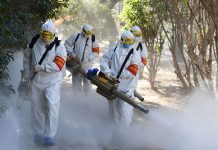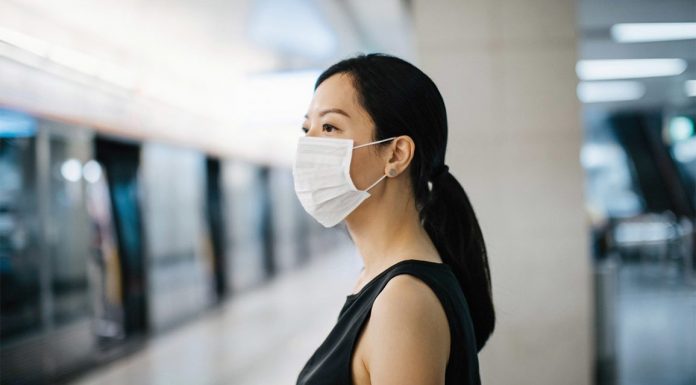With the COVID-19 virus spread, and the terrible fatality
for some, the health concerns are quite real.
And as of this writing, those total impacts are completely unknown. What is known is quite scary: NYC, New Jersey, and Detroit hospitals are
completely saturated and overextended; healthcare workers, especially in large
urban hospitals, are ill-equipped and in direct risk; special equipment, such
as ventilators and respirators, are in dire need—with a possibility of running
completely out for a given geographic area.
There are computer models trying to ascertain the high and low limits of
the spread and impacts—and they are all truly guessing. I do not mean to ignore, belittle, or treat
these health concerns lightly. But this missive
will deal with the other side of the equation:
the economic impact of the governmental and societal reactions to slow
the spread. Again, I’m not saying those
actions were and are not necessary—that is a completely separate argument, that
likely will only be resolved in hindsight.
But to the economic impacts, let’s dig.
In one calendar month, the US economy took a literal nose-dive. On February 20th, the Dow Jones
Industrial Average hit another record high of 29,219.98. Then the crash: by March 20th, the DJIA had lost
over 36% of its value, bottoming out at 18,591,93. It has recovered some of its lost ground, but
no where near its high. I hesitate to
use DJIA as a complete economic indicator, as it is a volatile, whimsical measurement—impacted
by emotion as much or more than the summation of its member companies’
performances. But other numbers are more
telling: first time unemployment filings,
predicted to be 1.2M, were at 3.3M.
Shortages of paper products, specifically toilet paper and paper towels,
as well as hand sanitizer, were reported everywhere. In some places, beef and chicken markets were
completely sold out. Note that the
supply and delivery chains for these products were completely uninterrupted! The shortages were due to panic buying only.
But more important than the shopping difficulties, by far, are the government
rules established to attempt to stop the spread of COVID-19. Almost overnight, local, city, and State
governments forbid gatherings of more than 100 people. Then 50.
Finally, 10 people! Restaurants were
limited to carry-out or delivery—no inside seating. Bars and taverns were immediately closed. Pro basketball, hockey, and baseball leagues
stopped operating. College basketball
cancelled March Madness. Rather than
bemoan the lack of entertainment available, consider the economic impacts: vendors that predict 50, 60, 70% of their
yearly income on these events are now down to zero income. Everything from foodservice to parking to
trash pickup to cleaning services to security—zero.
And that impact is cascading. Those
people had jobs, and people with jobs buy things—cars, houses, clothes,
whatever. People without jobs simply do
not have the confidence in their future income potential to make big
purchases. The demands for those
products will be reduced, possibly impacting buying trends for months or years
to come. If you are in an industry considered
‘non-essential’, your job is on hold at best, gone at worst. Retail (other than food), hospitality,
recreation, travel, you name it: these
folks are now jobless, many for the first time ever.
So, let’s discuss the PEOPLE. Many
proud, hard-working, salt-of-the-Earth, folks, that have been working their
entire lives, are now adrift. They are
not unemployed due to laziness or poor job performance. They lost their jobs to an attempt to
minimize the virus spread! Their five, ten,
even 50 year financial plans are in danger, if not evaporated. Those folks that diligently work hard through
nearly every hardship, are now at a loss to predict what happens next. Will their jobs be there when the virus runs
its course? Will the companies that
stopped operating even exist at that point?
Will people of every age bracket have to start over from scratch? Will they run their savings into the ground,
and pile credit card bills on top, just to survive the gap? Through absolutely no fault of their own,
their economic lives have STOPPED. Anyone
think that re-starting the economy, after slamming on the brakes, will happen
quickly? There is literally ZERO
forecast of when that re-start may even begin.
What of their mental health? I
shudder to think of the depression, or even suicide, rates that this unforeseen
calamity could bring.
In closing, the isolation necessary in this time of virus just makes things
worse. Call a friend. Call a neighbor. Stay as connected as the circumstances
allow. Stay safe, but by all means, stay
human, too.
I worry



















